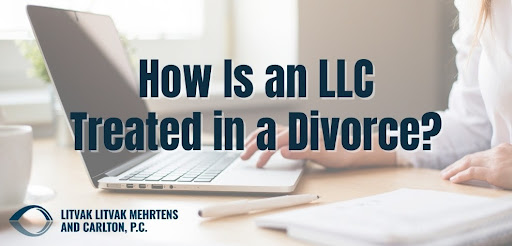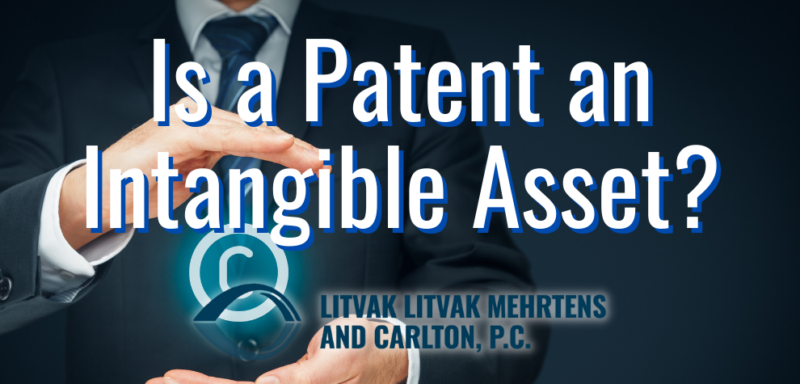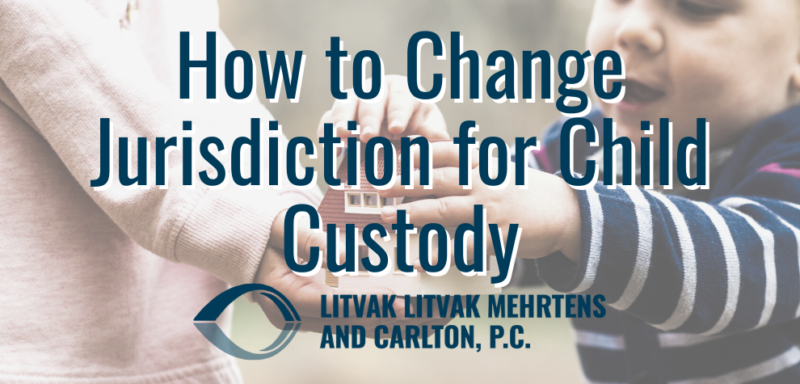Divorce is hard financially and emotionally. And when a couple shares ownership of a business, it gets complicated fast and has a higher financial impact. Dividing assets and determining their future involvement are among the difficult decisions made by divorcing couples who co-own or co-operate limited liability companies (LLC). So how is an LLC treated in a divorce?
Divorcing couples must consider their ownership interest in the company. Another consideration is how divorce affects the business in the future. This depends on the type of entity it is.
You and your spouse’s small business is likely an LLC. Often, LLCs form to take advantage of benefits, including keeping business and personal assets separate, less required paperwork, and adapting the company as it changes or grows.
Additionally, this type of corporation protects owners from personal liability and allows more control over the company. The downside is that most states require an equitable separation of property in a divorce. In some cases, LLCs are considered marital assets.
This is why it’s essential to speak with a knowledgeable Denver divorce lawyer about what may happen to the partnership. The legal team at Litvak Litvak Mehrtens and Carlton’s extensive experience handling these types of divorce issues is very beneficial for our clients. Please contact us today with questions about property division CO and how divorce affects your LLC. You can call a Denver family lawyer at 303-951-4506 or fill out our online intake form for more information.
See Also: Use a Business Prenup to Secure a Business
Types of Businesses Involved in Divorces
There are multiple ways businesses establish, which plays a part in whether or how a company is divided.
- One spouse started the company before marriage.
- Both spouses started the business together before getting married.
- One spouse established the firm after the couple was married.
- Both spouses began the company together after marrying.
- A family business started by one spouse’s family before marriage.
Many types of companies are divvied up in a divorce. The business may also be any of the following:
- A single small independent business run from the home or a storefront
- A small business chain operated by managers or the couple themselves
- Several independent small businesses (for example, the couple owns several restaurants and a catering company)
- A franchise with several locations
- An investment business, including funds held in real estate investments.
Before becoming business partners with a spouse, it’s vital to know the implications of doing so. It’s essential to understand in the unfortunate case that a divorce occurs.
Divorce and C Corporations
A C corporation is an organization taxed separately from a business owner’s personal taxes. A separate set of forms report profit and losses to the Internal Revenue Service. As a result, any tax debts are the responsibility of the C corporation and not the owners personally.
During a divorce, a factor to keep in mind is that these businesses can pay income to the owners. The payments, or dividends, are then considered personal income. As a result, a family court judge can include company profits in the owner’s total income when setting spousal support. It’s best to discuss this complex matter with your attorney.
Divorce and S Corporations
S Corporations do not file corporate taxes. Instead, losses and profits are “passed through” to the owner and reported on personal tax returns. This means the business owners personally owe tax debts.
In this case, a judge considers this as personal income and looks at the business’s tax debts’ implications. This is also a complex issue best discussed with your Denver divorce lawyer.
Divorce and LLCs
A limited liability company also gives its owners a business structure that shields them from personal responsibility for business liabilities and debts. This provides business owners/members the organizational perks of a sole proprietorship or partnership and the tax benefits.
LLC members may include corporations, people, or other LLCs.
Types of LLCs

Each state has its interpretation of what is considered an LLC. However, the legal structure is similar. It is essential to remember that an LLC owner is regarded as a member, and LLCs can have more than one owner.
These are common types of LLCs in Colorado:
- Single Member/Sole Proprietorship – This type of LLC has one owner responsible for taxes, company transactions, and business debts. This is the most affordable type of LLC to form and the most popular filing type.
- General Partnership – This is the most popular filing type for LLCs with multiple members. Debts, taxes, and company transactions are the responsibility of all members.
- Family Limited Partnership – Family members own this partnership to protect business interests and property. Some tax benefits are protected while the structure allows one generation to transfer ownership to the next.
- There are two types of partnerships in this LLC – general partners and limited partners. Management of the partnership is the purview of general partners. They have unlimited liability. Meanwhile, limited partners have limited liability and don’t manage the entity.
- L3C Company – These are philanthropic non-profit organizations.
- Member-Managed or Manager-Managed – Owners of the company run a member-managed LLC. Every owner is authorized to act on behalf of the company. When a business has passive members, like investors, a manager-managed LLC is selected.
- Limited Partnership – These are a mix of an LLC and a general partnership. Limited partnerships are used for estate planning and divorce.
Is Colorado a Community Property State?
Colorado is not a community property state. A couple’s marital assets are jointly owned in a community property state. That’s even if one spouse owns a piece of property or holds the title to an asset.
Instead, it is a common law or “equitable distribution” state. Marital property is not assumed to belong to both parties and is not subject to equal division in a divorce.
Colorado equitably divides the marital property. This frequently means the spouse earning more money gets a more significant portion of the property.
How Is Property Divided in a Divorce in Colorado?

In Colorado, assets and debts accumulated during the marriage are split equitably between divorcing partners when a marriage ends. All property acquired belongs to both spouses in a marriage, no matter whose name is on the title. It includes anything of value, such as real estate equity, bank accounts, investments, vehicles, retirement accounts, personal property and household goods, stock options, pets, the increased value of the separate property, and business interests.
Once the court issues a divorce decree, the property splits according to its value at the time of divorce. This is unless the parties come to a separate agreement.
See Also: How to Split Stocks in a Divorce
Factors for Equitable Distribution
Property isn’t necessarily split into equal halves. Instead, it is fairly divided. Per C.R.S. 14-10-113(1), the court looks at several factors when determining the fair property division in Colorado.
These include:
- The amount each spouse contributed to acquiring the property. This includes contributions as a homemaker.
- The value of the property set aside for each spouse.
- Each spouse’s financial circumstances when the property is divided. This includes the preference of wading the home to the spouse caring for the couple’s children.
- Decreases and increases in the separate property during the marriage or reduction of these assets for marital purposes.
How Is an LLC Treated in a Divorce?
Colorado is an equitable distribution state. As such, marital property is any property accumulated during the marriage. Non-marital property is acquired before the marriage, inherited during the marriage, or excluded by agreements.
A business’ value includes tangible assets such as furnishings and fixtures, along with intangible assets such as “goodwill,” accounts receivable, and the value of work in progress. As long as it generates a decent revenue stream for the owner above what they could earn working for a third party, a business with no assets has value.
See Also: Tax and Charitable Giving Strategies to Remember
Depending on factors specific to your LLC, your business could be considered marital property according to:
- The date your LLC was created
- Whether the marital property is invested in the LLC
- If your partner provided contributions to the LLC
- Agreements made regarding the LLC
Your LLC created before marriage can be considered a marital asset, for example, if the marital property is invested in it. Your LLC is an asset, so business valuation in divorce is an essential step in the divorce process. The Colorado divorce attorneys at Litvak Litvak Mehrtens and Carlton can help with the appraisal process.
Transfer of LLC Interest in Divorce

Transferring an ownership interest in a private company is common in divorce settlements. Typically, most assets, including business ownership interests, can be divided between divorcing spouses without any gift or federal income tax penalties. Under this tax-free transfer rule, the spouse receiving the asset assumes its existing tax basis and holding period.
If you give your spouse the home in your settlement agreement, in exchange for you keeping 100% of the stock in your business, this would be a tax-free asset swap. The person who receives them retains the existing holding periods and basis for the stock and home.
These transfers can happen before the divorce or after it’s finalized. This also applies to transfers after divorce if they’re made “incident to divorce.” The transfer must occur within a year of the marriage ending or six years after the marriage ends if the transfers are made concerning the divorce settlement.
Contact a Denver Divorce Attorney
An experienced Colorado divorce lawyer helps you determine the value and best steps forward for your LLC during your divorce case. Please call the legal team at Litvak Litvak Mehrtens and Carlson, P.C., at 303-951-4506 for a free case evaluation. Not only do we provide advice to help you make the right decisions, but our CO family law attorneys protect your business through aggressive negotiations.





